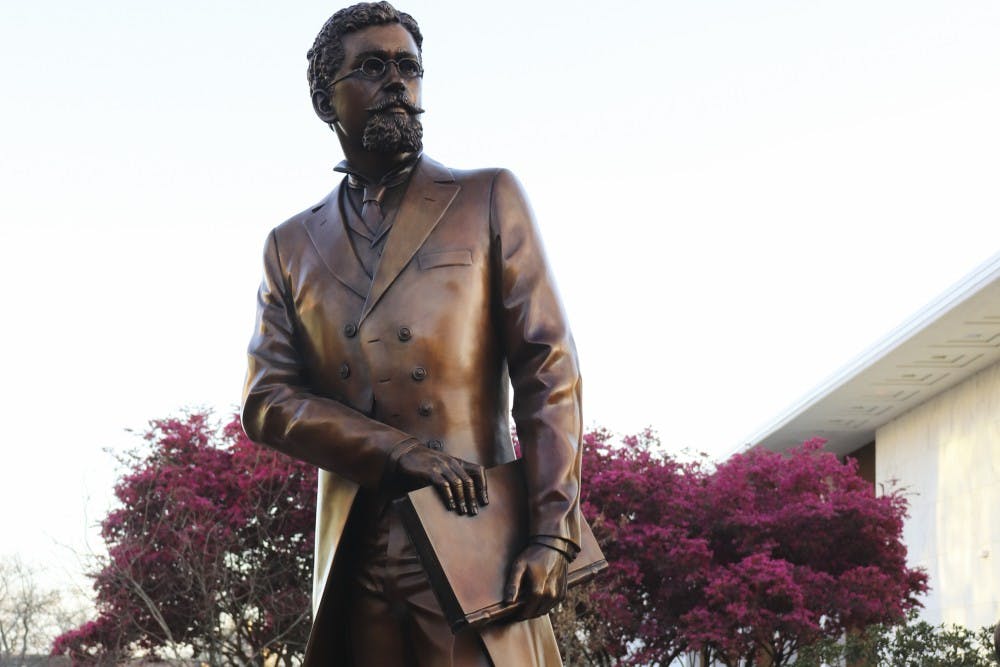With the premiere of two pieces by Grammy Award nominated artists, the USC School of Music will pay tribute to Richard Greener in the School of Music Recital Hall.
The School of Music plans to honor the first African-American Harvard graduate and USC professor at 7:30 p.m. Tuesday through music and poetry. The concert is free to the public.
So far this year, the university has honored the distinguished professor through the erection of a statue outside Thomas Cooper Library. The concert, says Jennifer Parker-Harley, an associate professor of flute, will honor Greener's beliefs and experiences.
“Music has a way of capturing a time and a place ... emotions that are hard to pinpoint with language,” Parker-Harley said. “These pieces capture some of the ideas that he wanted to get across."
The concert will open with remarks from Katherine Chaddock, author of “Uncompromising Activist: Richard Greener, First Black Graduate of Harvard." Chaddock, Distinguished Professor Emerita at USC, said she’d speak about Greener’s struggle instead of his long list of accomplishments.
“I want to ... talk more about the struggles that he had because this is not about a huge emotional struggle to be a black person who is really kinda more prepared for a white world in his education and his early career and so forth,” Chaddock said.
In addition to his other academic achievements, Greener was also among one of the first African-Americans to graduate from the USC School of Law. As a professor, Greener taught philosophy, Latin and Greek. After leaving USC, Greener served as a diplomat for the U.S. in Vladivostok, Russia.
The two musical works, composed by Grammy Award nominees Valerie Coleman and Jeff Scott, will be performed by USC music faculty, students and a singer from Columbia.
“Their mission is to support ... music for a multi-cultural background,” Parker-Harley said. “They’re fantastic musicians and really great teachers, wonderful people.”
While Greener may have been somewhat forgotten in the past century, the music professor said USC is making the effort to recognize him and keep his memory and legacy alive.
“I think it’s important that we are honest about our history ... [by] celebrating the life of somebody like Richard Greener who history kind of forgot,” Parker-Harley said. “I think it’s really important to celebrate the accomplishments of someone like him. It changes the way that we see ourselves and that we see each other.”
The university funded the event through the Visiting Scholars Grant from the USC Provost’s Office.
“The most important thing to us as the faculty members involved is that we are helping to bring his story to life and to celebrate his accomplishments,” Parker-Harley said. “It’s through doing things like this that we can move forward.”

